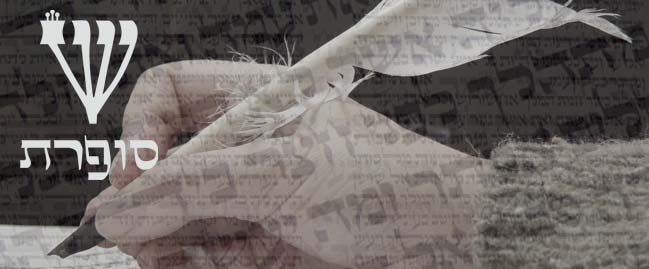SHABBAT BE-MIDBAR
??"?
11 Sivan
I found this today - a great article on feminist theory, women's expressed art-creativity being identified as our sexuality by the male audience, & the struggle to be defined outside of our effect on straight men. Well worth the read...
I also came across this. Thank you, Regina, for your care & kindness.
When I lit my Shabbat candles last Friday night, the one on the right, the "zachor" (remembrance) one, went out right away. It wouldn't catch fire. Just a dud :(
I skipped both the evening & morning services, davening at home & postponing the "coming out" of my hair until the women's shiur on Shabbes afternoon which, it so happened, I was giving.
I didn't know that I would end up teaching 48 hours after our get, as the Thursday appointment in Seattle was only made Tuesday. But I didn't feel right about cancelling - it would have left the organizer of this fab Vancouver Jewish women's tradition in the lerch & I didn't want to do that to her. I decided instead to risk giving a potentially mediocre teaching, even though all the women of my community deserve better. But they are just that - a community. Which means I don't have to be perfect in front of them, even when I'm filling a leadership role, thank G@d.
So when the time came I left the house, bare-headed & bare-fingered, & made my way the 4 blocks to Vivian's where this week's gathering was being held. Thank G@d all the Orthodox Jews live close together...
I began with an apology to everyone: that the actual talk I had spent some time preparing was about this week's parsha & what it has to say about how G@d doesn't always give us what we want, or what we think we need, & that we must have faith that G@d always fills our actual needs. That our state of lack is our own construction. But that I wasn't going to give over this talk to them because I had accepted a get from my now ex-husband this week & I just couldn't share the teachings I'd prepared without getting upset. Because then it would just become a big therapy session (they all laughed at this, as my voice broke) & that's not what they came for! :)
What I did give over to these patient women was something along these lines:
Tomorrow (Sunday, May 28th) would be Rosh Chodesh Sivan & the 45th day of the Omer. There's a Biblical woman who corresponds to each day of the Omer & the one who represents day 45 is our mother Rachel. Her life illustrated Tiferet shebeMalkhut, the trait of compassion within the sphere of Majesty. To learn more about her, read Sefer B'reyshit/Genesis 29-32 & Yermiyahu/Jeremiah 31:15-17.
Rachel - whose name means "ewe" - was infertile most of her life, & begged her husband Ya'aqov to give her children. He snapped at her that only G@d could grant her request, that he was doing all he could. She offered her servant Bilhah to Ya'aqov as a pilegesh (concubine in English, but this literally means "half-wife": p'lag ishah), in order to adopt the children of that union as her own. This was a common practice under the Code of Hammurabi in Persia at that time. Bilhah births Dan ("judgement") & Naftali ("my struggle").
In desperation, Rachel even traded her night with Ya'aqov to her sister Le'ah - whose name means "weary" - in exchange for some mandrake root, a rare local aphrodisiac. That night, traditionally the night before we were to receive the Torah in the future, Le'ah & Ya'aqov conceived Yissachar ("reward"). Their 5th son on Shavu'ot.
Finally, The Holy One has compassion on Rachel &, the Torah tells us, opened her womb. The Hebrew word for womb is "rechem"; for compassion, "rachamim". She bears Yosef ("G@d increases") & later Benyamin ("son of the right hand", ie good luck) before she died from childbirth near Beit-Lechem (Bethlehem, "House of Bread").
According to Aycha Rabbah, the Great Lamentation, & to Kabbalah, Rachel our Mother guards all her children in exile. She represents Malkhut, the sphere of the here-&-now, the time & place of the Shekhinah; the channel of Creation.
Rachel exemplifies the rachamim - compassion - of the Shekhinah, G@d's enveloping feminine presence, for us...Tiferet she-be-Malkhut. A balance.
It is said that with each Jew who makes Aliyah, who returns to live in the Land, Rachel is built up. The consciousness of the Land causing the ingathering of the exiles is a reconstruction of Rachel.
We are most like Rachel when we model in our own lives the way we want to see all people treated.
Shabbat Shalom...
Technorati tags: religion, religion and philosophy, Judaism, Torah, Canada, journal, weblog, blog, diary, soferet, sofrut, scribe, art, thoughts, stam, feminism, safrut, women, Technorati.














4 Comments:
You're welcome, Aviel! I so enjoy visiting you and I have learned so much from you, both as a woman on her journey and a pioneer. Your honesty is inspirational...
Your talk on Rachel sounds fantastic! I wish I could have been there! My sister's name is Rachel- I will have to send this to her!
This comment has been removed by a blog administrator.
Reading this post makes me realize what a radical shift it must have been, leaving the house with your hair uncovered and your fingers naked. Wow. I am a little bit awed by your courage and your strength, now and always.
בס"ד
You gals are so sweet! I've been very divided about how much of what to share, as this blog isn't meant to be some kind of attention-grabbing expose (after all, I'm not Tom Cruise!). But there is still Torah in all my suffering. & I want to share the Torah of life as I live it, which includes when I'm in agony. Like right now.
I welcome all your thoughts, prayers, good vibes, 100%. Todah!
As for the hair & ring thing. It was really hard. Being married was part of my identity, part of how I related to the world & how I expected the world to relate back to me. The rabbis asked me to take off my rings the moment before I accepted my get, & my wedding band made an audible *thunk* on the table, the way significant moments in our lives call out.
I said to one friend that I felt "demoted", not being married anymore. Not that wedded people are "better" than singles, but I consider being engaged in that most intimate & risky & gorgeous of relationships to be a statement of how one is willing to do the work of one's soul. Marriage is not for the faint of heart. It's holy. So one must act accordingly within it & around it.
(sigh) I just really want to be a Grownup one day!!!
Post a Comment
<< Home